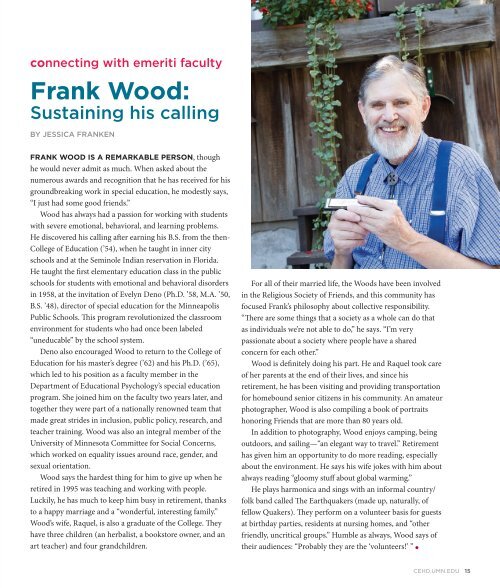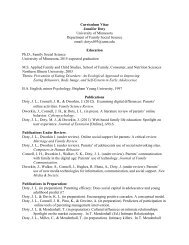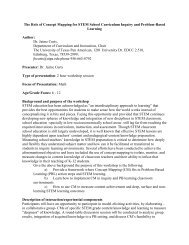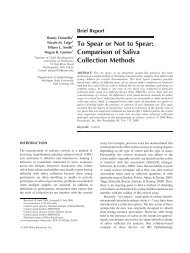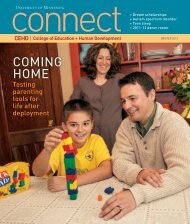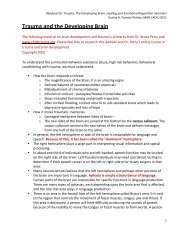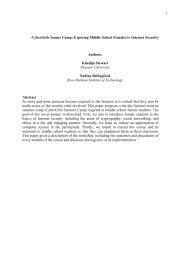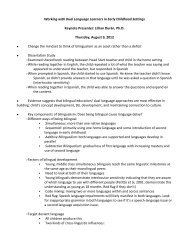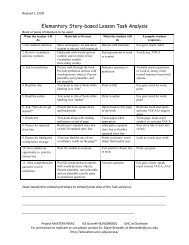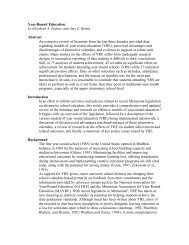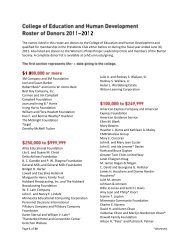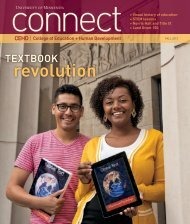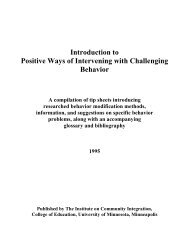connect! - College of Education & Human Development - University ...
connect! - College of Education & Human Development - University ...
connect! - College of Education & Human Development - University ...
You also want an ePaper? Increase the reach of your titles
YUMPU automatically turns print PDFs into web optimized ePapers that Google loves.
<strong>connect</strong>ing with emeriti faculty<br />
Frank Wood:<br />
Sustaining his calling<br />
BY JESSICA FRANKEN<br />
FRANK WOOD IS A REMARKABLE PERSON, though<br />
he would never admit as much. When asked about the<br />
numerous awards and recognition that he has received for his<br />
groundbreaking work in special education, he modestly says,<br />
“I just had some good friends.”<br />
Wood has always had a passion for working with students<br />
with severe emotional, behavioral, and learning problems.<br />
He discovered his calling after earning his B.S. from the then-<br />
<strong>College</strong> <strong>of</strong> <strong>Education</strong> (’54), when he taught in inner city<br />
schools and at the Seminole Indian reservation in Florida.<br />
He taught the first elementary education class in the public<br />
schools for students with emotional and behavioral disorders<br />
in 1958, at the invitation <strong>of</strong> Evelyn Deno (Ph.D. ’58, M.A. ’50,<br />
B.S. ’48), director <strong>of</strong> special education for the Minneapolis<br />
Public Schools. This program revolutionized the classroom<br />
environment for students who had once been labeled<br />
“uneducable” by the school system.<br />
Deno also encouraged Wood to return to the <strong>College</strong> <strong>of</strong><br />
<strong>Education</strong> for his master’s degree (’62) and his Ph.D. (’65),<br />
which led to his position as a faculty member in the<br />
Department <strong>of</strong> <strong>Education</strong>al Psychology’s special education<br />
program. She joined him on the faculty two years later, and<br />
together they were part <strong>of</strong> a nationally renowned team that<br />
made great strides in inclusion, public policy, research, and<br />
teacher training. Wood was also an integral member <strong>of</strong> the<br />
<strong>University</strong> <strong>of</strong> Minnesota Committee for Social Concerns,<br />
which worked on equality issues around race, gender, and<br />
sexual orientation.<br />
Wood says the hardest thing for him to give up when he<br />
retired in 1995 was teaching and working with people.<br />
Luckily, he has much to keep him busy in retirement, thanks<br />
to a happy marriage and a “wonderful, interesting family.”<br />
Wood’s wife, Raquel, is also a graduate <strong>of</strong> the <strong>College</strong>. They<br />
have three children (an herbalist, a bookstore owner, and an<br />
art teacher) and four grandchildren.<br />
For all <strong>of</strong> their married life, the Woods have been involved<br />
in the Religious Society <strong>of</strong> Friends, and this community has<br />
focused Frank’s philosophy about collective responsibility.<br />
“There are some things that a society as a whole can do that<br />
as individuals we’re not able to do,” he says. “I’m very<br />
passionate about a society where people have a shared<br />
concern for each other.”<br />
Wood is definitely doing his part. He and Raquel took care<br />
<strong>of</strong> her parents at the end <strong>of</strong> their lives, and since his<br />
retirement, he has been visiting and providing transportation<br />
for homebound senior citizens in his community. An amateur<br />
photographer, Wood is also compiling a book <strong>of</strong> portraits<br />
honoring Friends that are more than 80 years old.<br />
In addition to photography, Wood enjoys camping, being<br />
outdoors, and sailing—“an elegant way to travel.” Retirement<br />
has given him an opportunity to do more reading, especially<br />
about the environment. He says his wife jokes with him about<br />
always reading “gloomy stuff about global warming.”<br />
He plays harmonica and sings with an informal country/<br />
folk band called The Earthquakers (made up, naturally, <strong>of</strong><br />
fellow Quakers). They perform on a volunteer basis for guests<br />
at birthday parties, residents at nursing homes, and “other<br />
friendly, uncritical groups.” Humble as always, Wood says <strong>of</strong><br />
their audiences: “Probably they are the ‘volunteers!’ ” l<br />
CEHD.UMN.EDU 15


